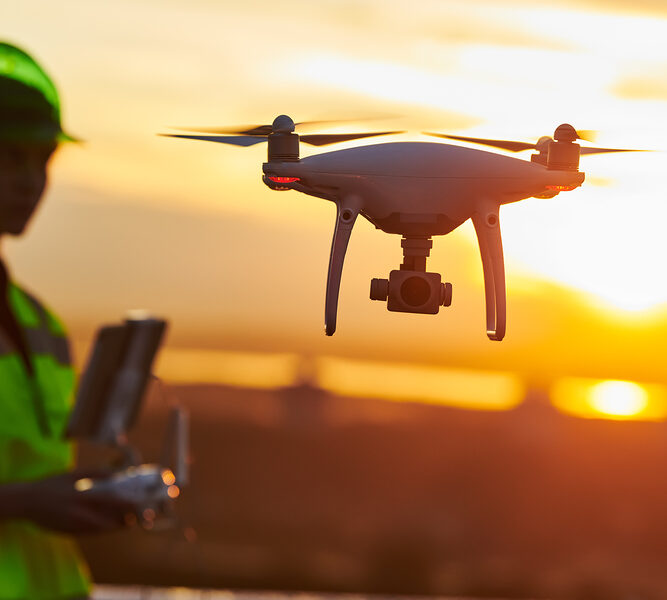I had the chance last month to attend the Stadium of Fire at the Brigham Young University football stadium in Provo, Utah. It had fire dancers, fireworks, marching bands and country music band Rascal Flatts. It also had a magnificent drone show featuring, among other wonderful imagery, a drone minute-man that shot fireworks out of his musket.
Entertainment like this is just one of many applications of futuristic drone technology. Tiny, almost magic robot fliers have allowed us to enjoy breathtaking performances we couldn’t otherwise see. Folks in Hollywood and elsewhere have known this for years.
Memorable early adopters of drone photography include the train case in “The Expendables 3,” Hugh Jackman’s drone catch in “The Greatest Showman” and the motorbike chase in “Skyfall.” Recent examples include the dogfights in “Top Gun: Maverick” or this summer’s high-adrenaline races in “F-1: The Movie.” At this point, it would probably be easier to list those films that don’t use cinematographic drones rather than those that do.
Filmmakers have joined the ever-louder chorus of voices opposing legislation that will sabotage this part of their industry. Washington is once again considering legislation for “countering CCP Drones,” which — if it became law — would bar entertainers’ access to equipment from DJI, a commercial drone and camera maker.
Unusual even in Washington circles for targeting a single company, the bill proposes a ban on DJI’s drones based on unfounded allegations that their products pose a national security threat. A ban would make it harder for national security thriller movies to be made in Hollywood because a ban may prevent movie producers from using high-quality camera technology produced by that controversial company.
DJI, the company that manufactures the most popular commercial drone in the world, also produces many of the cameras used in major motion pictures. They have come under scrutiny over the last several years by lawmakers because they manufacture cameras in the same country where your iPhone and computer are manufactured, China. Politicians would never dare to ban iPhones because they are manufactured in China, yet they are targeting DJI because the American companies competing with DJI need government cronyism to compete.
DJI is in a battle with Washington politicians over the consumer drones they sell in the United States, resulting in an effort by many of them to essentially ban DJI. Aside from that, a ban on DJI products would adversely affect high-budget Hollywood films because a ban would prevent the approval of new camera technology that would end the use of DJI cameras in movies.
While these politicians are looking to ban DJI, they do not have a plan for the adverse outcomes on the film industry or a plan on how to replace them with alternatives that have the high technical and camera quality that these productions rely.
Congress passed a provision in the 2005 National Defense Authorization Act that allows bureaucrats at the Federal Communications Commission to ban DJI products from purchase by U.S. consumers. That kicks in at the end of this year, and Hollywood directors will be informed that they will have to get new camera technology to produce inferior films. Yet, another unintended consequence of the Washington ruling class.
Hollywood has firmly embraced DJI over the years. It has bestowed upon the company not only an Emmy but an Academy Award Technical Achievement Award at the most recent Science and Technical Awards ceremony. The Netflix series “Adolescence” just garnered a staggering 13 nominations. One of the keys to its success, a DJI camera that allowed filmmakers to capture the series’ one-shot format, thus taking the television drama to new critical heights.
Hollywood, the place where dreams are made, has given its seal of approval to DJI. Now is the time for Washington to do the right thing and properly evaluate DJI to get its seal of approval.
These movies used DJI cameras to make their movies amazing, and Washington politicians are seeking to ban those cameras because they want to protect American-made drones that are another product of DJI.


